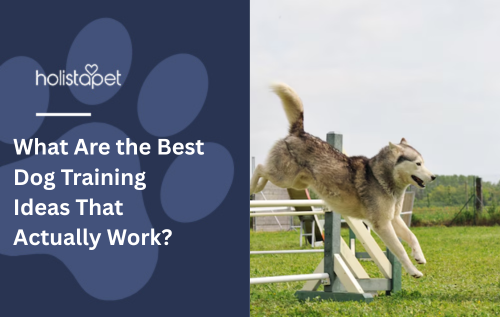Welcoming a new puppy into your home is exciting—but also a little overwhelming. One of the most common questions new dog owners ask is: “When should I start training my puppy?” The truth is, your puppy starts learning the moment they enter your home, so it’s essential to have a plan in place.
In this guide, we’ll break down a puppy training schedule by age, from 8 weeks all the way to 6 months and beyond. With the right structure and consistency, you can raise a well-behaved and happy pup.
 🐾 Puppy Training Schedule by Age
🐾 Puppy Training Schedule by Age
8–10 Weeks Old: Foundation Training Begins
-
Focus Areas:
-
Potty training
-
Name recognition
-
Basic commands: sit, come
-
Socialization with sounds, surfaces, people
-
-
Tips:
-
Keep training sessions short (2–5 minutes)
-
Use positive reinforcement with treats and praise
-
10–12 Weeks Old: Confidence Building
-
Focus Areas:
-
Crate training
-
Leash introduction
-
Bite inhibition (teaching gentle play)
-
-
Helpful Note: Now is a good time to begin gently introducing your puppy to grooming routines—brushing, nail touching, etc.
3–4 Months Old: Skill Strengthening
-
Focus Areas:
-
Reinforce basic commands
-
Begin “stay” and “leave it”
-
Short walks on leash
-
-
Helpful Note: Keep socializing! Meet new people, see other dogs, and explore environments safely.
4–6 Months Old: Real-Life Practice
-
Focus Areas:
-
Longer durations of sit/stay
-
Loose leash walking
-
Controlled greetings (no jumping on people)
-
-
Training Tip: Puppies at this age may test boundaries—consistency is key.
6+ Months: Advanced Training and Problem Solving
-
Focus Areas:
-
Recall in distracting environments
-
Off-leash commands
-
Behavioral corrections (barking, jumping, etc.)
-
-
Helpful Note: Consider group classes or a professional trainer if needed.
📌 Helpful Notes for Success
-
Stay consistent: Use the same commands and routines each day.
-
Short and fun: Keep training sessions brief and positive to avoid boredom.
-
Patience matters: Every puppy learns at their own pace.
-
Avoid punishment: Positive reinforcement works better and builds trust.
 Frequently Asked Questions
Frequently Asked Questions
Q1: Can I train my puppy before they’re fully vaccinated?
Yes, but do it safely. Focus on home training and safe socialization with known dogs or puppy-safe environments.
Q2: What age is too late to train a puppy?
It’s never too late, but the earlier you start, the easier it is to shape behavior. Puppies learn best before 6 months of age.
Q3: How many times a day should I train my puppy?
Aim for 3–5 short sessions daily. You can also incorporate training into play and mealtime.
Q4: When should I start potty training?
Start immediately—at 8 weeks old or as soon as your puppy comes home.
 Final Thoughts
Final Thoughts
A structured puppy training schedule by age helps your pup learn at the right pace and prevents problem behaviors before they start. With love, patience, and positive reinforcement, you’ll build a strong bond and a well-mannered companion for life.
Remember: every puppy is different. Stay flexible, celebrate small wins, and enjoy the journey!


 CBD Oil for Dogs - Fast Acting
CBD Oil for Dogs - Fast Acting
 Chicken Flavored CBD Oil For Dogs - Easy Dose
Chicken Flavored CBD Oil For Dogs - Easy Dose
 Salmon Flavored CBD Oil For Dogs - Highly Rated
Salmon Flavored CBD Oil For Dogs - Highly Rated
 CBG Oil for Dogs and Cats - Loved by Thousands
CBG Oil for Dogs and Cats - Loved by Thousands





Leave a comment
All comments are moderated before being published.
This site is protected by hCaptcha and the hCaptcha Privacy Policy and Terms of Service apply.